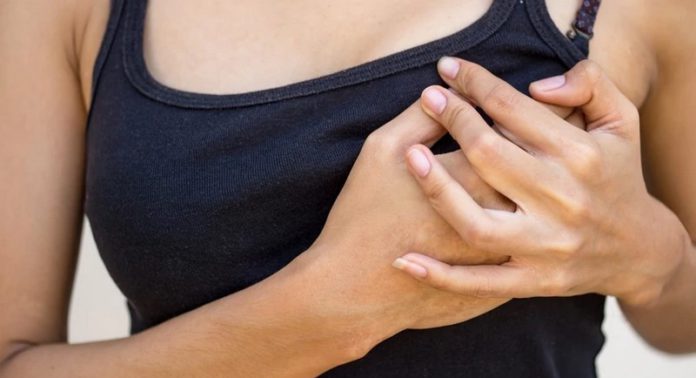The National Programme Manager of Non-Communicable Diseases (NCD) at the Ghana Health Service, Dr. Efua Commeh, has urged relationship partners to make a conscious effort to know the nature of their spouses’ breasts.
She noted that this can assist in spotting odd changes and occurrences in their companions’ breasts that they may not notice, adding that the individuals must also be aware of their own normal breast size to be able to identify symptoms more quickly.
Dr. Commeh indicated this while discussing the topic ‘Breast Health: Beyond Awareness’ on Joy Prime’s Prime Morning show on Tuesday, October 1, 2024 as the breast cancer awareness month commences.
“There are few people we’ve met whose whole breast is like one big stone, and unfortunately, they don’t know any better, so they feel like that’s how everybody is supposed to be. Meanwhile, it’s just one breast sitting as a rock; it shouldn’t be like that. So as much as possible, know yourself, and if you have a partner, know your partner’s breasts. Nothing stops you from knowing what their normal is. There are times when the individual might not actually notice, but it’s the partner who will be like, ‘This doesn’t look normal. Let us get help as quickly as possible.”
She said understanding one’s anatomy helps in examining irregularities and preventing serious diseases once a condition is identified early.
In situations where the breasts develop swelling, Dr. Commeh admonished that victims seek immediate support rather than waiting until the pain becomes severe
She emphasised that it is a genuine fear when people notice changes in their breasts.
However, it should not restrain them from visiting a health centre for an examination, urging that such conditions should be considered normal like others.
“It is crucial that people understand that having breast cancer is not a death sentence but that you can easily recover once it’s detected early and you go through the whole gamut of treatment such that you can come out doing well just as you were prior to the diagnosis of your cancer.
“So, it’s a genuine fear, and we need to be able to highlight the fact that if somebody has been diagnosed with it, it’s a disease. Currently, somebody has malaria; we actually treat it as normal. Why can’t people still continue their normal lifestyle even though they’ve been diagnosed with cancer?” she quizzed.
Dr. Commeh highlighted that people need to be desensitised regarding the condition such that victims who recover do not feel stigmatised or neglected to enable them to go by their normal daily activities and share their stories to inspire others.
ALSO READ:

